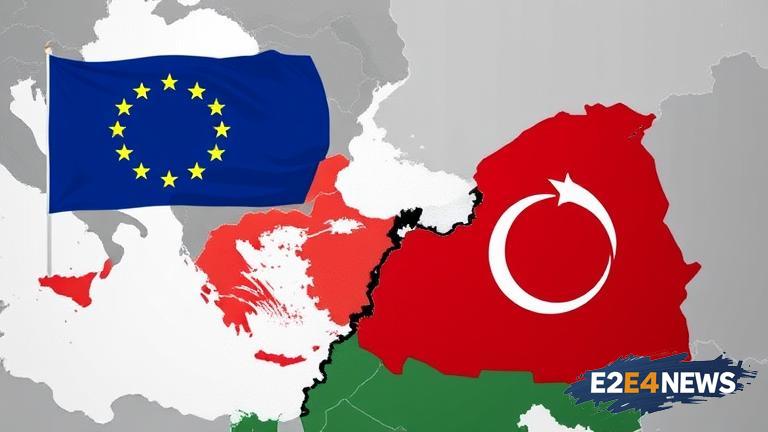The European Union is grappling with a deepening crisis in Libya, where Russia’s increasing influence is threatening to undermine the bloc’s efforts to stabilize the war-torn country. At the heart of the issue is Khalifa Haftar, a powerful military leader who has been backed by Russia in his bid to control Libya. Haftar’s forces have been making significant gains in recent months, and his relationship with Russian President Vladimir Putin has raised concerns among EU leaders. The EU has been trying to promote a peaceful resolution to the conflict, but Russia’s involvement has complicated matters. Magnus Brunner, the EU’s ambassador to Libya, has warned that the situation is becoming increasingly dire. The EU has imposed sanctions on several Russian individuals and companies in response to their involvement in Libya, but it remains to be seen whether these measures will have any significant impact. Meanwhile, the humanitarian situation in Libya continues to deteriorate, with thousands of migrants and refugees trapped in the country. The EU has been criticized for its handling of the crisis, with many arguing that it has failed to provide adequate support to those in need. As the situation continues to escalate, the EU is facing growing pressure to take a more robust approach to addressing the crisis. This could involve increasing its military presence in the region, or providing more significant financial support to the Libyan government. However, any such moves would need to be carefully calibrated to avoid exacerbating the situation. The EU is also facing challenges from other external actors, including Turkey and the United Arab Emirates, which have their own interests in the region. Despite these challenges, the EU remains committed to finding a peaceful resolution to the conflict, and is working closely with other international partners to achieve this goal. The situation in Libya is complex and multifaceted, and it will require a sustained and coordinated effort to resolve. The EU’s ability to navigate this challenging landscape will be crucial in determining the outcome of the crisis. As the EU continues to grapple with the situation, it is clear that the stakes are high, and the consequences of failure could be severe. The EU must balance its own interests with the need to protect the rights and dignity of the Libyan people, and to promote a stable and peaceful future for the region. The coming months will be critical in determining the course of the crisis, and the EU’s response will be closely watched by governments and observers around the world.
